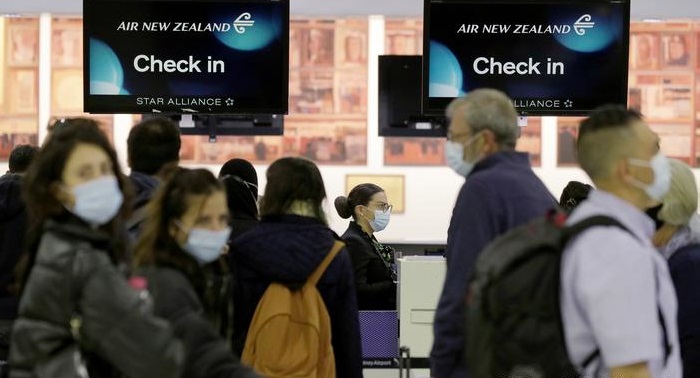
Australian passengers headed to New Zealand on Monday without the need to quarantine for the first time in over a year, agencies reported.
The "trans-Tasman travel bubble" allows Australians and New Zealanders to visit each others' country without any restrictions. The two nations' governments imposed heavy restrictions on entry into their respective country in March 2020 due to the coronavirus pandemic.
"It is truly exciting to start quarantine-free travel with Australia. Be it returning family, friends or holidaymakers, New Zealand says welcome and enjoy yourself," New Zealand Prime Minister Jacinda Ardern said.
Plans to expand
Although people arriving from New Zealand have been able to travel to parts of Australia without quarantine since October, Monday was the first time that people could travel, or return, to New Zealand without going into a two-week controlled isolation.
The first flight under the new arrangement took off on Monday morning from Sydney, heading for Auckland.
Australian Prime Minister Scott Morrison called the travel bubble a "win-win" for both countries, allowing them to boost their economies. Ardern and Morrison described it as a "world-leading arrangement" in a joint statement.
The duo are looking to include further countries in the Pacific in the quarantine-free travel bubble, once they are considered safe.
Travelers welcome Pacific bubble
The new possibilities for travel proved popular with hundreds of people gathering in Australian airports in preparation for their newly unrestricted flights to New Zealand, local television showed.
"It is the first time in 400 days that people can travel quarantine-free and we are adding 16 return flights a day to New Zealand, and they are full," Qantas Chief Executive Alan Joyce told the Australian Broadcasting Corp.
New Zealand had held off longer from offering unrestricted entry to people flying from Australia due to sporadic outbreaks. New Zealand has recorded fewer than 3,000 cases since the pandemic began.
The two prime ministers warned travelers that changes to the arrangement could be made at short notice in case of new COVID-19 outbreaks and the program would be under "constant review."